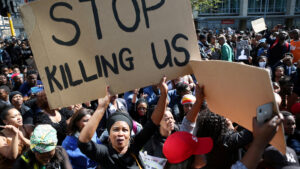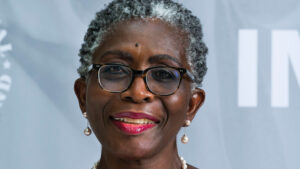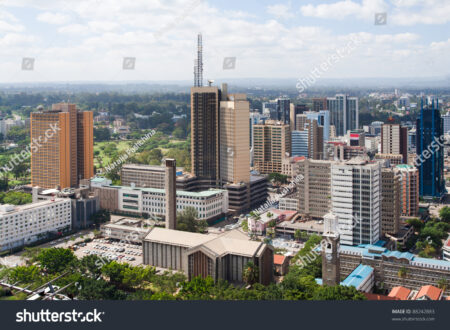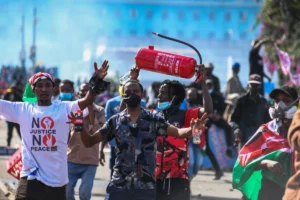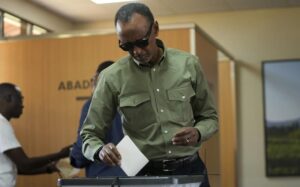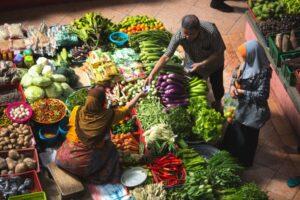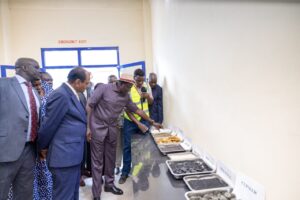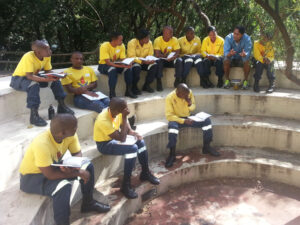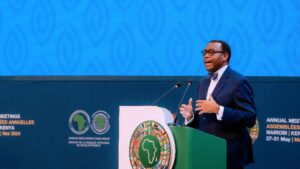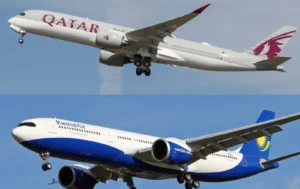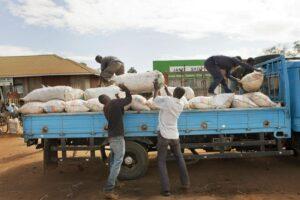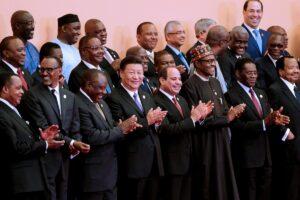- Africa’s new dawn: the rising role of digital and AI in agriculture
- Can Dangote Refinery Transform Africa Energy Ambition
- Gallup Survey: 80 per cent of Kenyan Workers Are Disengaged and Seek New Opportunities
- Madagascar Man Freed from 5KG Tumor After 15-Year Struggle
- How women in Africa are perceived and treated
- Sugar consumption in Kenya to Increase to 1.23 Million Tonnes
- Can Somalia and Turkey Oil deal Bring Change in Somaliland
- Remittances to Kenya dropped to $371.6 million in June, marking a six month low
Countries
- A majority of Kenyan workers are disengaged according to the 2024 edition of Gallup employees survey.
- The survey further shows that men are slightly more engaged than their female counterparts.
- More women (50 per cent) were stressed than men (47 per cent). The junior employees recorded higher stress levels than managers.
A new study shows that for every five employed Kenyans, four lack the drive to go above and beyond in their roles at work.
A recent global survey by Gallup says 80 per cent of Kenyan workers are “disengaged” meaning they only do the bare minimum and are only in their current job because they haven’t found a job opening elsewhere.
‘Disengaged from work’ refers to a lack of emotional or psychological connection to one’s job or workplace.
Disengaged employees typically show low levels of motivation, commitment, and enthusiasm for their work.
At 80 percent, the rate of disengagement …
- Only about 50% of women in Kenya and 52% in Uganda feel that they are treated with respect and dignity.
- In Zimbabwe, 60% of women feel that they are treated with respect and dignity. This is a sharp drop from an estimated 71% of women who reported being treated with respect in 2013.
- The percentage of people in South Africa who feel this way was even worse at 27% among men and 28% among women.
In Africa’s most advanced economy South Africa, the percentage of people in South Africa who felt this way was even worse at 27 percent among men and 28 percent among women.
The push for equality across Africa appears far from yielding good results with a new report showing that the perceptions that women are treated with respect and dignity have dropped sharply in recent years in Kenya, Uganda South Africa, and Zimbabwe.
According to Gallup …
- Antoinette Monsio Sayeh is set to retire as Deputy Managing Director of the International Monetary Fund (IMF) on September 12, 2024.
- The IMF says her experience, deep integrity, and wise judgment have been invaluable to the global lender.
- Antoinette Sayeh oversaw several vital initiatives of operations, policies, and corporate priorities, drawing on her deep knowledge of the institution.
Liberian management icon and trailblazer Antoinette Monsio Sayeh is set to retire from the International Monetary Fund (IMF) on September 12, 2024.
In an update by the IMF Managing Director Kristalina Georgieva, Antoinette Sayeh will conclude her tour of duty in the Washington-based institution this September where she has been serving as the Deputy Managing Director since 2020.
At the helm, she served with deputy managing directors Kenji Okamura (Japan), Bo Li (China) and Gita Gopinath (US/India) who is the first managing director.
“Antoinette has been a pillar of the Fund’s leadership …
- Small businesses struggle for credit as lenders channel 80 percent to Medium Sized Enterprises
- High collateral requirements and unfavourable interest rates have been found to disadvantage MSMEs
- Only 16 percent of businesses are reaping from Kenya’s formal MSMEs financing market valued at $45.4 billion (Sh5.9 trillion).
Only 1.1 million micro, small, and medium enterprises in Kenya have access to formal credit out of the total 7.4 million MSMEs in the country.
This equals only 16 percent of businesses reaping from Kenya’s formal MSMEs financing market valued at $45.4 billion (Sh5.9 trillion).
According to a new finding by pan African market insights firm Stears, despite MSMEs accounting for over 98 percent of businesses and contributing a substantial 40 percent to GDP formal financing is still small.
…“Despite their outsized economic impact, only 16 per cent of these vital enterprises currently access formal credit. With most MSMEs dependent on informal and
- Kenya’s Export Promotion and Branding Agency has unveiled its strategic plan to grow Kenya’s export market to $11.5 billion by 2028.
- For established markets, Kenya aims to implement consolidation and diversification interventions.
- In the period Kenyan exports grew by over Sh2 billion into the country’s top 25 markets.
Kenya’s Export Promotion and Branding Agency has unveiled its strategic plan to grow Kenya’s export market to $11.5 billion by 2028. This will be a 10 percent increase from the $ 6.7 billion (Sh873.1 billion) recorded in 2022.
The agency through the implementation of the 2023/2024 – 2027/2028 strategic plan, says Kenya is set to be positioned among the top 50 global brands.
This renewed push comes at a time when Kenya’s export value for the first time in history hit $7.7 billion (Sh1trillion) in 2023, according to the 2024 economic survey by KNBS. The great performance was contributed by tea which …
- Burger Consumption in 2023 topped on March 10th recording the highest orders in Kenya
- Kenya ranks number in Sub-Saharan Africa for the highest number of burger orders delivered in the past 12 months.
- Chicken burgers remain the most popular, with ‘double’ burgers being the norm, and the Smash burger trend sweeping Kenya with a staggering 444 per cent growth.
Kenya has topped sub-Saharan Africa for the highest number of burger orders delivered in the past 12 months. Insights contained in Glovo’s annual report on burger consumption in Kenya show that Kenya saw a 35 per cent increase from May 2023 to April 2024.
This achievement makes Kenya the number one country in Sub-Saharan Africa for the highest number of burger orders delivered, with Nigeria and Uganda following respectively.
It also ranks Kenya second among all African markets in the number of customers with burger orders, just behind Morocco.
In total, …
- The transformative potential of the Heaven on Earth Program utilizes self-reprogramming techniques to achieve inner peace, happiness, and financial abundance through mental and spiritual practices.
- Supported by scientific research and universal wisdom, the program emphasizes brain synchronization, meditation, and manifesting desires to foster mental clarity, emotional stability, and overall well-being.
- By integrating these holistic practices, individuals can reprogram their minds to create a state of ‘heaven on earth,’ enhancing their happiness, wealth, and life performance.
Is it possible for individuals to achieve a state akin to heaven on Earth through the Heaven on Earth Program? This question lies at the heart of a profound exploration into the transformative potential of self-reprogramming to elevate happiness and wealth. In this article, we delve into compelling research findings to deepen comprehension and endeavour to provide insights into this intriguing inquiry.
The concept of the “Guide to Heaven on Earth Living,” as posited …
- Kenyan Shilling drop to Sh100 against the dollar will mirror the pre-2020 levels
- A weak shilling means costly imports and the burden is often passed to the consumers.
- The exchange rate affects how much we earn from exports.
Kenya Shilling strengthening against the US dollar to the pre-2020 level of about 101 can only be realised sometime in September, according to market analysts.
The latest monetary update by the international research body, Economic Intelligence Unit (EIU), shows the US dollar will remain bullish against the local currencies for much longer amid the high Fed rate which will be maintained for much longer.
“The Fed cuts will come later than we previously expected,” the report reads.
“We have pushed the forecast for the date that the Fed will begin reducing its policy rate to September, from June previously, and now expect a 50-basis-point reduction before year end (from 75 basis points …
- At the ongoing AfDB Annual Meetings 2024 in Nairobi, President Dr. Akinwumi Adesina highlighted Africa’s resilience and growth potential despite global challenges, highlighting the AfDB’s impactful initiatives in infrastructure, climate action, and economic development.
- Dr. Adesina celebrated the Bank’s 60th anniversary, showcasing its financial innovations and strong partnerships aimed at empowering women, and youth, and promoting sustainable development.
- The President’s speech inspired optimism and a collective resolve to continue driving Africa’s progress and transformation.
The cool Nairobi air buzzed with anticipation as leaders, policymakers, and stakeholders from across the African continent and beyond gathered at the Kenyatta International Convention Centre, in Kenya’s capital today. The opening ceremony of the African Development Bank’s (AfDB) Annual Meetings 2024 was not just an ordinary event; it marked a turning point in the institution’s history—its 60th anniversary. Against this historic backdrop, Dr. Akinwumi Adesina, the President of AfDB, delivered a powerful speech that …






